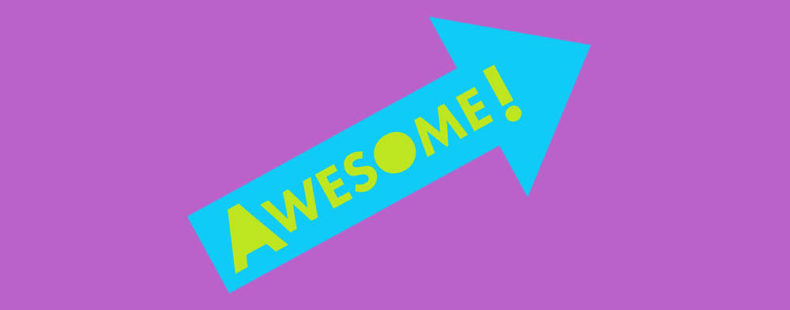Many words have been wasted on the subject of when adulthood starts. Some hold that it comes about with the right to drink alcoholic beverages or vote in an election. For particularly stringent grammarians of a certain generation, the rite of passage that marks the official start of adulthood is the point at which one becomes annoyed at hearing someone say that something is awesome, when they don’t actually mean that it produces awe.
These people feel that this use of the word awesome is a sign of sloppiness in language, or something that they never did when they were young, or a portent of the continual and concomitant decline of our language and the moral turpitude of our youth. Before we decide whether or not the modern sense of awesome is indeed the hereto unknown fifth horseman of the apocalypse, it is worth examining some of the word’s history. When did this noble word begin getting stripped of its meaning, and forced into servitude as the vapid exclamation of slack-jawed teenagers? It began before most of the people reading this were born.
The earliest use of awesome comes in the late 16th century, and the word had the meaning of “filled with awe.” The problem with saying that this is the same meaning that kids today should intend when they say the word is that awe had a somewhat different meaning back then; it generally referred to feelings of severe fear or dread. So people in the 17th century who were saying that something was awesome did not necessarily mean “that is a thing of great beauty”; chances are, they might have meant “that is a thing that sends shivers of terror down my spine.”
This began to change in the middle of the 20th century, as the word broadened to mean “very impressive.” By 1977 people were already complaining about this – a woman named Lynne Bronstein wrote to the Los Angeles Times asking “Has anyone besides myself noticed the current rage for the term ‘awesome’?” Bronstein took a dim view of the fact that “now everything is ‘awesome,’” and asked “aren’t we overdoing it a little?”
The word has continued to broaden itself, and now can be found used as a general purpose exclamation of approval. In doing so, it is following in the footsteps of another very similar word: awful. Awful had a very similar meaning as awesome for much of our history: inspiring dread. However, its meaning started changing quite a bit earlier (at the beginning of the 19th century), and so we’ve had a couple of hundred years to get used to it. If you are one of the people who use awesome to refer to something that is merely pleasing, and someone tells you that your language is awful, you can take pride in the fact that you have inspired in them extreme feelings of dread and terror.
—
Ammon Shea is the author of Bad English: A History of Linguistic Aggravation and Reading the OED: One Man, One Year, 21,730 Pages. He lives in New York City with his wife (a former lexicographer), son (a potential future lexicographer), and two non-lexical dogs.












